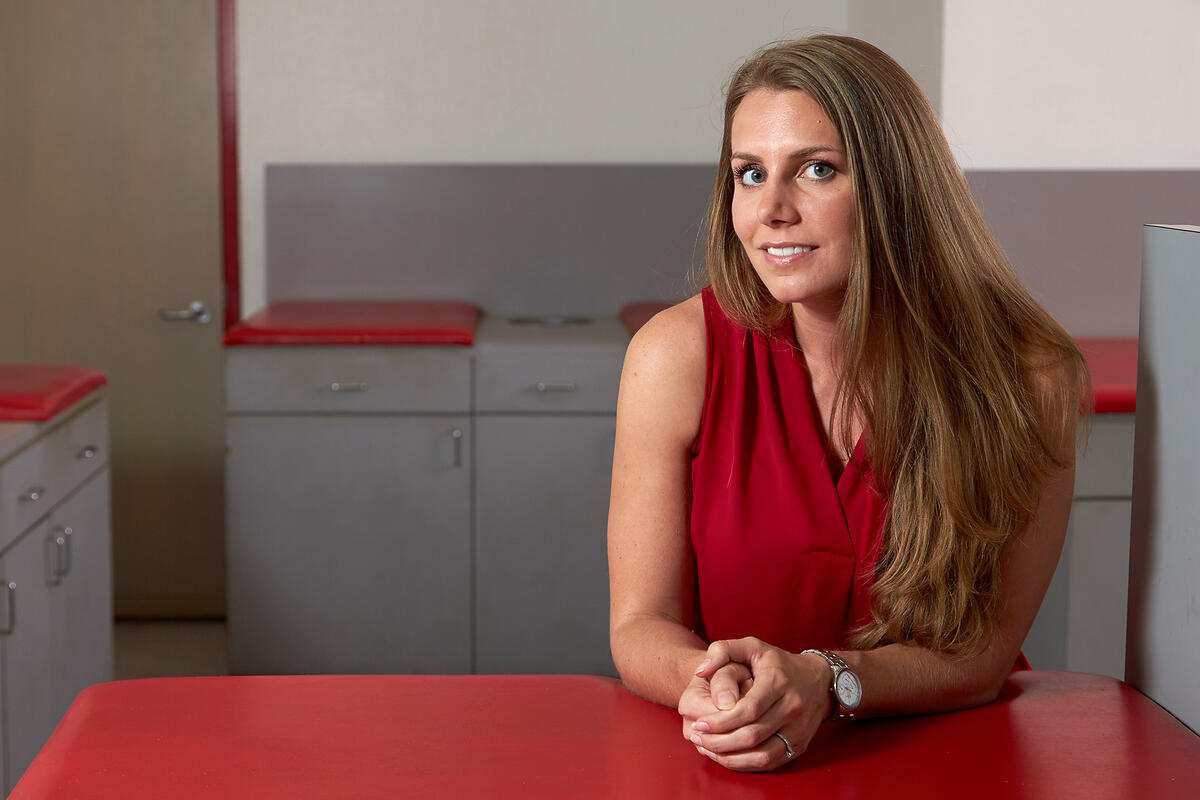When she began her search for a faculty opening, Kara Miller, assistant professor in the athletic training program in the School of Allied Health Sciences, knew she wanted a university with a robust athletic training education program and an established biomechanical research laboratory. Her wish list became a dream job at UNLV.
Why UNLV?
I wanted to be someplace that has a strong athletic training education program. UNLV clearly met that criterion, as it most often has a 100 percent first-time pass rate on the national board exam. I was also hoping to find a university with a solid biomechanics research lab so that I could continue my research on lower extremity overuse injuries. I wasn’t certain I would find these at one university, and was completely blown away to learn that UNLV has both. Having the space and resources for high-caliber biomechanics research, and the ability to teach athletic training, made UNLV a great fit for me.
What’s the biggest misconception about your field?
The biggest misconception is most people assume athletic training and personal training are the same profession. Athletic trainers are allied health care professionals who handle injuries, injury prevention, rehabilitation, maintenance, and emergency medicine.
What’s the biggest challenge in your field?
The biggest challenge is educating the public about the profession of athletic training. It is a whole lot more than just taping ankles.
What inspired you to get into your field?
I was always very interested in sports medicine as a profession. Growing up, I was the kid who wanted to be a doctor. I thought broken bones and injuries were cool. When I was in sixth or seventh grade, my dad tore his ACL and he and I watched the video of his surgery. I found amazing the ability to put everything back together and return someone to his or her normal physical activity. This profession enables me to be the first person providing care to an injured athlete, and then help that person rehabilitate, recover, and return to the field, or the activity that makes them happy.
Proudest moment in your life?
I am proud of having earned each of my degrees.
One tip for success?
My tip for success is finding balance and being well-rounded. You can’t be go-go-go all the time. You have to continue to do things that make you happy. Part of this balance includes knowing when to push on and persevere, and when to step back and re-evaluate your approach.
Where did you grow up?
I grew up in the suburbs north of Dallas.
What would people be surprised to know about you?
I am one of the athletic trainers who provide medical coverage at national and international competitions for USA Roller Sports, which is the national governing body for inline roller skating events such as speed skating, artistic skating, and inline hockey. Later this fall, I am traveling with the team participating in the world championships in Cali, Columbia.
Who was your favorite professor and why?
My favorite professor is Mandi Elder. She was my master’s program mentor at the University of Colorado at Colorado Springs (UCCS). My first year as a student, was her first year teaching at UCCS. She had a vision of what she wanted the program to be, and what she wanted her students to achieve. She never sacrificed her standards. She worked to raise her students and the program up to the standard she wanted to attain. And she did this by providing us, as students, with the tools we needed to reach those standards. I had other professors who had high standards, but she stands out due to her ability to get the best out of her students while truly caring about them. I’m sure I will think of her a lot as I navigate my first year at UNLV.
What can’t you work without?
For me, I can’t work without technology and French press coffee.
Pastimes or hobbies?
I am huge outdoors person. I am a runner (including road races), hiker, kayaker, and traveler.



